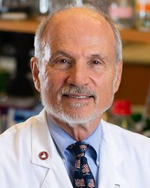Expanded Lung Cancer Screenings Could Benefit Millions
New guidelines from American Cancer Society (ACS) hope to expand access to critical lung cancer screenings for millions of Americans. The updated guidelines echo existing recommendations from the U.S. Preventive Services Task Force (USPSTF) that were put in place in 2021, with one exception.
Previous guidelines recommended annual low-dose CT scans for people ages 50 to 80 who had smoked a pack of cigarettes a day for 20 years and were either still smoking or had quit within the last 15 years.. Now, the ACS says that smokers who quit 15 years ago or more should get screened.
Our updated guideline widens lung cancer screening criteria, helping to detect lung cancer earlier and improve treatment options.
— American Cancer Society (@AmericanCancer) November 1, 2023
Visit https://t.co/uN5a4PIEik to learn more about these updates. pic.twitter.com/wowaqpu4pE
“This increases the potential number of people who are considered at elevated risk of developing lung cancer from currently 14.5 million Americans to approximately 19.5 million Americans,” said Dr. Lary Robinson, a thoracic surgeon at Moffitt Cancer Center. “In Florida, this change increases the risk pool from approximately 1 million people eligible for screening currently to 1.3 million Floridians.”
The National Comprehensive Cancer Network (NCCN) also changed its screening guidelines by removing the requirement to have stopped smoking within the last 15 years.
Currently, insurance companies and Medicare follow USPSTF guidelines for lung cancer screening. They cover the cost of the low-dose screening CT scan only for current smokers or those that have stopped smoking in the last 15 years.

Dr. Lary Robinson, thoracic surgeon
“We are hopeful that USPSTF will also follow suit in the near future and modify their screening guidelines to omit the requirement to have stopped smoking within 15 years,” Robinson said. “This very positive change by the American Cancer Society and previously the NCCN hopefully will result in the USPSTF also changing their guidelines so that these additional at-risk individuals can have low-dose screening CT scans covered by insurance and/or Medicare.”
There is no timeline on when or if the USPSTF could adopt the latest recommendations. In 2021, the agency updated it’s colon cancer screening guidelines, three years after the American Cancer Society expanded its recommendations.
According to Robinson, out of every 100 screening chest CT scans performed on people at risk, nearly two lung cancers are found, with 80% of the new lung cancers found are early stage with the best chance for cure.
“Having followed the published literature on the excellent results of screening chest CT scans and having been involved with lung cancer patients for many decades, I am delighted to see that the American Cancer Society as well as the NCCN have both removed this requirement to be eligible for lung cancer CT screening,” Robinson said. “The only proven way to find lung cancer early is by low-dose screening chest CT scans. Increasing the number of eligible patients will likely find more lung cancer earlier when it is the most curable.”



